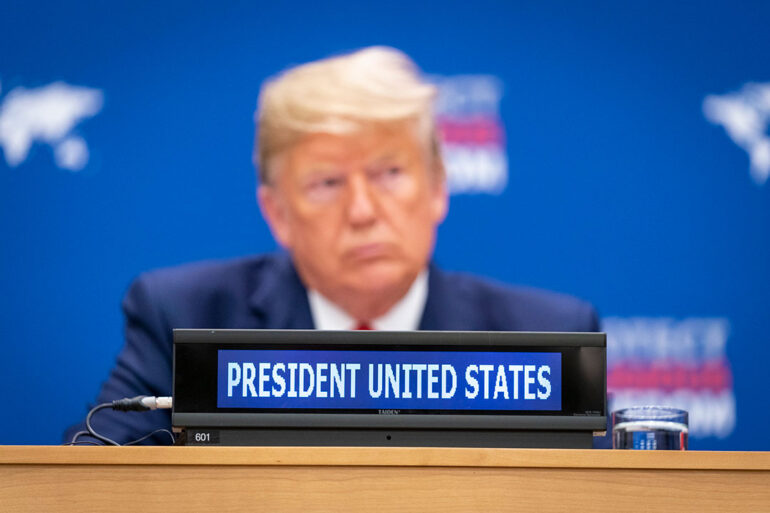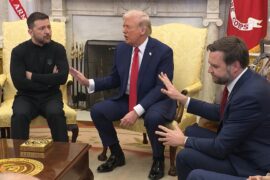United States President Donald Trump announced on Tuesday that American forces will stop bombing Ansar Allah (the Houthis) in Yemen.
Trump claimed that the Iran-backed group has agreed to stop disrupting important shipping lanes in West Asia.
The announcement came only hours after Israeli air strikes across Yemen that hit Sanaa International Airport and electric power stations in response to an Ansar Allah attack on Israel’s Ben Gurion International Airport on Sunday.
Following Trump’s announcement, Oman’s government claimed that it had mediated the ceasefire, under which neither the US nor Ansar Allah will attack one another. But neither Washington nor Muscat mentioned Ansar Allah’s ongoing strikes against Israel. In fact, a spokesman for the Yemeni group pledged that attacks targeting Israel would continue.
Israeli officials admitted to local media outlets that Jerusalem was given no advance warning of the ceasefire by Washington, which clearly prioritizes protecting US vessels in the Red Sea and Bab al-Mandab Strait.
The US president also announced on Tuesday that a big policy announcement would accompany his upcoming visit to the region, scheduled to begin May 13..
According to a Sunday report in Yisrael HaYom, Prime Minister Binyamin Netanyahu (Likud) has been privately expressing frustration with Trump.
Netanyahu has reportedly told his aides and close associates that although the US president might often say things that on the surface sound supportive of Israel, his actions are highly problematic.
According to the report, Netanyahu expressed specific concern with Trump’s support for Turkish President Recep Tayyip Erdogan’s efforts to increase Ankara’s control over Syria.
Under Erdogan’s neo-Ottoman leadership, Turkey has grown to become one of Israel’s chief rivals in the region. Despite a complicated relationship between Ankara and Jerusalem, Erdogan recently made the point of publicly praying for Israel’s demise as part of a Ramadan visit to a Turkish mosque.
During a press conference in the Oval Office last month, President Trump praised Erdogan as Netanyahu silently sat next to him, clearly not wanting to publicly disagree with Trump after seeing how that went for Ukrainian President Volodymyr Zelenskyy.
Netanyahu has also reportedly expressed concern over Trump’s decision to engage in nuclear talks with Tehran — announced by the American president at that same White House press conference last month.
Iran is broadly viewed in Israel as our primary antagonist – the power behind all of our smaller regional enemies. The conventional wisdom amongst Israelis is that, sooner or later, we’re going to have to take military action to prevent Iran from developing nuclear weapons.
According to Israel’s military leadership, a strike against Iran would be far more likely to succeed if carried out in coordination with Washington. There’s also an assumption that US diplomatic support would be crucial for Israel following such a strike.
Trump’s announcement that his administration will be negotiating with Tehran should therefore be understood as pouring water over any Israeli plans to hit the Islamic Republic.
What’s more, Reuters has reported that Trump’s Iran nuclear deal is shaping up to look alarmingly similar to President Barack Obama’s 2015 Joint Comprehensive Plan of Action (JCPOA), a deal that was ultimately scrapped by Trump during his first term in office.
The president’s recent decision to oust his national security adviser, Michael Waltz, should also make obvious the current daylight between Trump and Netanyahu on Iran.
In fact, Waltz’s removal is largely understood as connected to the former Green Beret officer sharing Netanyahu’s strategic assessment of Iran and trying to coordinate with the Israelis to move his boss towards their position. The swift firing indicates that Trump has no interest in adopting the Israeli position and is generally distrustful when it comes to any of his people appearing too close with Jerusalem.
Trump made clear to Netanyahu in front of the entire world where he stands on the issues of Syria/Turkey and Iran – issues that Jerusalem sees as vital to Israeli security needs.
The mere act of praising Erdogan and announcing his intentions to negotiate with Iran as Netanyahu silently sat next to him should be understood as an abusive attempt to display dominance – Trump showing the world that he can force the Israeli prime minister to swallow whatever he shoves down his throat.
Prime Minister Netanyahu may have been correct to hold his tongue at that press conference, but he would also be well advised to make whatever plans he deems necessary with the assumption that Trump is not actually an ally but a threat to Israeli interests.





